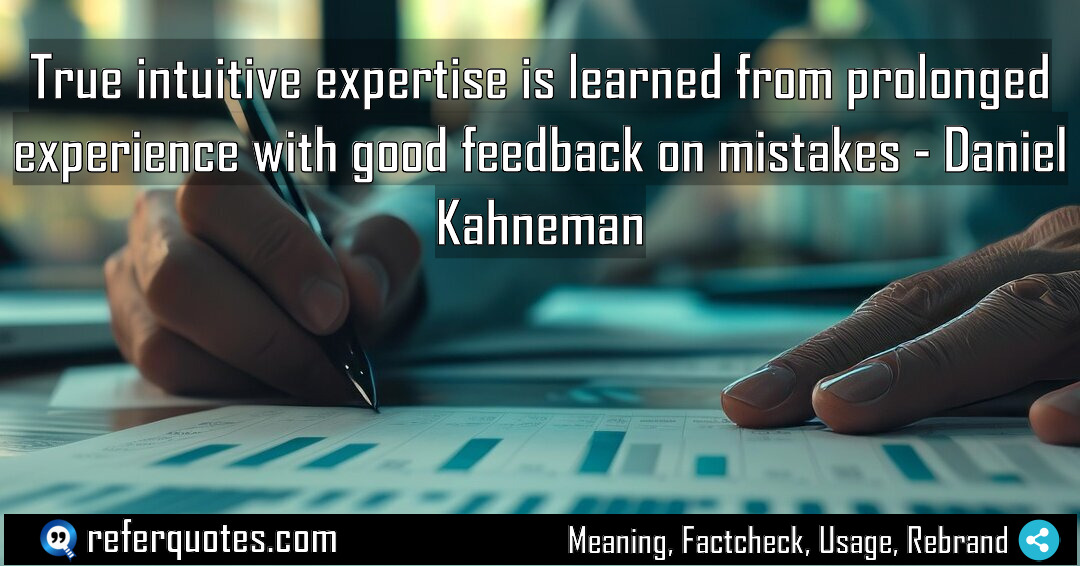True intuitive expertise is learned from prolonged experience… but that’s only half the story. The real magic happens with good, honest feedback on your mistakes. It’s the secret sauce that separates true gut-feel from just guessing.
Share Image Quote:Table of Contents
Meaning
Real intuition isn’t a mystical gift; it’s a hard-earned skill built through years of practice and, crucially, by learning from your errors.
Explanation
Look, I’ve seen so many people get this wrong. They think intuition is this innate thing you’re born with. But Kahneman is saying it’s the complete opposite. It’s a forged skill. You need two key ingredients, and most people only focus on the first one.
First, you need the reps. The prolonged experience. You have to put in the ten thousand hours, see thousands of situations. That builds your mental database.
But here’s the part everyone misses: good feedback on mistakes. It’s not just about doing the thing over and over. It’s about having a system—or a mentor, or a process—that tells you, clearly and quickly, “Hey, you messed up here, and here’s why.” That feedback loop is what calibrates your internal compass. Without it, you’re just reinforcing bad habits. You’re just an experienced fool.
Quote Summary
| Context | Attributes |
|---|---|
| Original Language | English (4111) |
| Category | Skill (471) |
| Topics | expertise (2), feedback (11), learning (211) |
| Literary Style | practical (132) |
| Emotion / Mood | inspiring (436) |
| Overall Quote Score | 86 (314) |
Origin & Factcheck
This comes straight from Daniel Kahneman’s 2011 masterpiece, Thinking, Fast and Slow. It’s a cornerstone of his work on how we think, debunking the myth of the infallible expert gut. You sometimes see this idea misattributed to other thinkers, but the specific phrasing and the deep research backing it are pure Kahneman.
Attribution Summary
| Context | Attributes |
|---|---|
| Author | Daniel Kahneman (54) |
| Source Type | Book (4672) |
| Source/Book Name | Thinking, Fast and Slow (54) |
| Origin Timeperiod | 21st Century (1995) |
| Original Language | English (4111) |
| Authenticity | Verified (4672) |
Author Bio
Dr Daniel Kahneman transformed how we think about thinking. Trained in Israel and at UC Berkeley, he built a career spanning Hebrew University, UBC, UC Berkeley, and Princeton. His partnership with Amos Tversky produced prospect theory and the heuristics-and-biases program, culminating in the Nobel Prize in Economic Sciences. He engaged broad audiences through bestselling books and practical frameworks for better decisions. He continued writing and advising late into life, leaving ideas that shape economics, policy, medicine, and management. If you want to dive deeper, start with the Dr Daniel Kahneman book list and explore his enduring insights.
| Official Website
Where is this quotation located?
| Quotation | True intuitive expertise is learned from prolonged experience with good feedback on mistakes |
| Book Details | Publication Year: 2011; ISBN: 9780374275631; Latest Edition: Farrar, Straus and Giroux, 2013; Number of pages: 499. |
| Where is it? | Part III: Overconfidence, Chapter 22: Expert Intuition, Approximate page 234 (2013 edition) |
